Annapolis, MD; September 1, 2022—The Entomological Society of America congratulates the recipients of its 2022 awards. ESA Awards & Honors recognize scientists, educators, and students who have distinguished themselves through their contributions to entomology. Award honorees will be showcased during the 2022 Joint Annual Meeting of the Entomological Societies of America, Canada, and British Columbia, November 13-16, in Vancouver.
Earlier this year, ESA also named the entomologists receiving the following honors:
The following individuals are recipients of the 2022 ESA professional, certification, early career professional, and student awards.
Professional Awards
Award for Excellence in Integrated Pest Management
This award, which is sponsored by Syngenta Crop Protection, recognizes outstanding contributions that have a direct relation to integrated pest management (IPM).
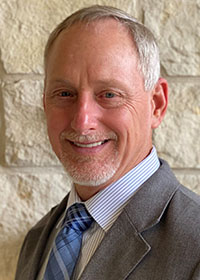 David Kerns
David Kerns
Texas A&M University
Dr. David Kerns is a professor, extension specialist, state IPM coordinator, and associate department head for the Department of Entomology at Texas A&M University. He received his B.S. degree in entomology from Texas A&M University, M.S. degree in entomology from Oklahoma State University, and Ph.D. degree from Auburn University. Kerns served 13 years at the Yuma Agricultural Center with the University of Arizona as an extension specialist, focusing on insect pest management in vegetables and citrus. From 2007 to 2011, he served as an extension specialist at the Texas A&M Research and Extension Center in Lubbock, Texas, where he focused on pest management in cotton. From 2012 to 2017, he served as a research scientist at the Louisiana State University AgCenter Macon Ridge Research Station in Winnsboro, Louisiana, and was awarded the Jack Hamilton Regents Endowed Chair in Cotton Production. In his current position with Texas A&M University, Kerns' research and outreach emphasis is in pest management and developing IPM programs for cotton, corn, sorghum and soybean, and insecticide and Bt resistance in Helicoverpa zea and Spodoptera frugiperda. Over the past five years, Kerns has contributed to the publication of 40 refereed journal articles and 14 extension publications. Since 2017, Kerns has been invited to present research results and insect management recommendations at 66 conferences, including scientific, consultant, grower, and ag-industry venues. Within the past five years, he has received more than $6.3 million in research and extension support and currently operates a laboratory with six graduate students, a research scientist, and an extension program specialist.
Distinguished Achievement Award in Extension
This annual award recognizes outstanding contributions to extension entomology.
 Dominic Reisig
Dominic Reisig
North Carolina State University
Dr. Dominic Reisig is a professor and extension specialist at North Carolina State University with extension and research responsibilities for field crops in the state since 2009. He is based at the Vernon James Center in eastern North Carolina two hours from main campus, providing him with a direct opportunity to collaborate with growers, consultants, and those in the agricultural industry. He received his B.A. in biology, with a Spanish minor (sí, el habla español), from Point Loma Nazarene University. He then received an M.S. in integrated pest management and a Ph.D. in entomology from the University of California, Davis. His extension program has raised awareness of stink bugs as a major pest of corn and has collaborated in the refinement of economic thresholds and reduced sampling time for this pest. Reisig's program has also evaluated economic thresholds for tarnished plant bug in cotton and has collaborated in documenting early evidence of insecticide resistance. Additionally, his program has promoted alternative insecticides to mitigate resistance for this pest and has evaluated a systems approach beyond insecticides for management. Finally, his program led the promotion of egg-based thresholds for bollworm to counter Bt resistance in cotton. Virtually 100% of North Carolina cotton growers are using these thresholds, saving more than $9 million a year. His program has ongoing efforts to develop new management techniques, as well as to try to manage this insect on a wider scale (termed area-wide management). Finally, his program is collaborating with social scientists to increase grower planting of non-Bt refuge corn.
Distinguished Achievement Award in Teaching
This award is presented annually to the member of the Society deemed to be the most outstanding teacher of the year.
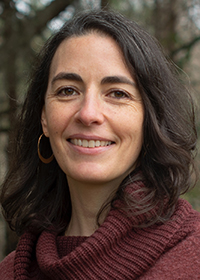 Andrea Lucky
Andrea Lucky
University of Florida
Dr. Andrea Lucky is an associate professor and graduate coordinator in the Entomology and Nematology Department at the University of Florida (UF). She received a bachelor's degree in biology from Brown University in 2000 and a Ph.D. in entomology from the University of California, Davis, in 2010. She spent two years in a postdoctoral position at North Carolina State University, where her work focused on public participation in entomology research through the School of Ants citizen science project. In 2012, she accepted a teaching-focused position at UF. At UF, her courses include introductory entomology for nonscience majors and advanced insect classification for undergraduate entomology majors, minors, and graduate students. Over the past 10 years she has taught more than 1,100 students in these courses and has also taught or co-taught a diversity of other courses, including tropical entomology, social insect biology, collections management, art-and-science collaboration, and invasive ant boot camp. Her involvement with entomology education extends to programmatic roles; she has chaired her college's Curriculum Committee and led a revision of the Entomology Department's undergraduate curriculum, and she currently serves as the department's graduate coordinator, overseeing a program of approximately 120 graduate students.
Lucky maintains an active research program focused on two main areas: 1) ant systematics and ecology, with an emphasis on the consequences of invasive ants, and 2) best practices in entomology education. Her scholarship of teaching and learning portfolio includes research exploring differences between in-person and online delivery of collections-based courses; how participation in research can lead to increased trust in science; and how attitude toward and knowledge of insects are related, across different cultures. Lucky's work has been funded by the U.S. National Science Foundation, the USDA-ARS, and a U.S. William J. Fulbright Scholarship. She has served as major advisor to 10 graduate students, as a committee member on 26 graduate committees, and as a mentor to 35 undergraduates in independent research. More than half of her research publications and all of her extension publications are co-authored with students.
Nan-Yao Su Award for Innovation and Creativity in Entomology
Each year this award is given to an ESA member who is able to demonstrate through his or her projects or accomplishments an ability to identify problems and develop creative, alternative solutions that significantly impact entomology.
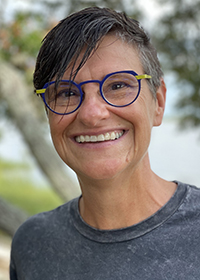 Nina Jenkins
Nina Jenkins
Penn State University
Dr. Nina Jenkins is a research professor in the Department of Entomology at Pennsylvania State University. Her research focuses on the development of fungal biopesticides and novel solutions for management of insect pests.
Jenkins obtained her B.Sc. in applied biology at the University of Greenwich, United Kingdom, and went on to work for CABI Bioscience as part of an international, multidisciplinary team of scientists working on the development of a fungal biopesticide for the control of locusts and grasshoppers in Africa. She completed her Ph.D. while working on that project and took on the role of program manager to oversee the licensing and technology transfer of the product, Green Muscle, to private industry.
After a brief interlude in Australia, as education program manager for the Invasive Animals CRC at the University of Canberra, she moved to Penn State in 2008. Over the past 14 years, Jenkins has explored the development and implementation of fungal biopesticides for a range of insect pests, including mosquitoes, house flies, Asian longhorn beetle, mushroom flies, spotted lanternfly, and bed bugs. Her most notable success has been the development of Aprehend (www.aprehend.com), a fungal biopesticide for the control and prevention of bed bug infestations. Jenkins secured an exclusive license for the patented technology from Penn State, and co-founded CoinidoTec LLC to produce and distribute the product. Since the launch in November 2017, Aprehend sales have increased year on year, and the biopesticide has become one of the most successful products for professional management of bed bugs.
Distinguished Achievement Award in the Promotion of Diversity and Inclusion in the Field of Entomology
This award honors a member or member's team for creating and promoting a diverse and welcoming environment for entomologists in their university, place of employment, or community.
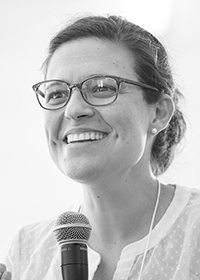 Margarita Lopez-Uribe
Margarita Lopez-Uribe
Penn State University
Dr. Margarita López-Uribe is the Lorenzo L. Langstroth Early Career Professor and an associate professor in the Department of Entomology at Pennsylvania State University. Her research and extension programs aim to understand the unintended consequences of agricultural practices on the health and evolutionary trajectories of bees to help develop sustainable practices through improved management and breeding programs of crops and pollinators. López-Uribe was the recipient of the ESA Early Career Professional Research Award in 2018 and a National Science Foundation (NSF) CAREER Award in 2020. In her lab, López-Uribe has trained students and postdoctoral scholars from different backgrounds to address critical questions in pollinator biology by capitalizing on the human potential and creativity of a diverse team. At Penn State, López-Uribe founded and chaired the Diversity, Equity, and Inclusion Committee in the Department of Entomology, and is co-leading a pan-university initiative that is supporting students from underrepresented groups across five colleges to work on research themes related to climate change and sustainability. With funding from NSF, she currently leads an international research program that trains undergraduate students in the United States and Colombia and prepares them for graduate school. López-Uribe is a member of the ESA Publication Council and president of the American Association of Professional Apiculturists.
Science Communication Award
This award honors impactful and innovative communication projects or programs that engage diverse public audiences with entomology-related scientific information.
- (1st Place) Bugs 101 Massive Open Online Course (MOOC), Maya Evenden, University of Alberta
- (Runner-Up) Entomological News for Hebrew Speakers, Maya Saar, University of Florida
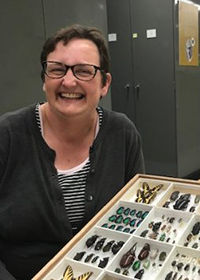 Bugs 101 Massive Open Online Course (MOOC)
Bugs 101 Massive Open Online Course (MOOC)
Maya Evenden, University of Alberta
Dr. Maya Evenden completed both master of pest management (M.P.M.) and Ph.D. degrees at Simon Fraser University, British Columbia. Her Ph.D. research investigated chemical communication and semiochemical-based management of orchard-inhabiting moths. Evenden pursued a postdoctorate at the University of Kentucky. In her first academic appointment at West Chester University, Pennsylvania, Evenden researched orchard agroecosystems and was introduced to undergraduate teaching. Evenden received an NSERC (Natural Sciences and Engineering Research Council) University Faculty Award to join the University of Alberta. In Alberta, Evenden's lab researches chemical and behavioral ecology of insect pests in western Canada. She has published 106 peer-reviewed journal articles and two book chapters, and graduated 20 graduate students from her lab since 2003. In addition to other teaching responsibilities, Evenden led the development of a massive open online course, called Bugs 101: Insect-Human Interactions, that launched in June 2019. This course is freely available around the world and has been developed as an online course for University of Alberta students. As of July 2022, more than 4,000 learners completed the course and over 36,000 learners have registered in the course from more than 130 different countries. Bugs 101 is used for professional development, or as a university-level course for institutions that do not offer entomology courses. Evenden is also active in scholarly service and has served as president of the Entomological Society of Alberta (2006), the Entomological Society of Canada (2010), and the International Branch of ESA (2018).
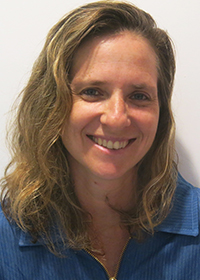 Entomological News for Hebrew Speakers
Entomological News for Hebrew Speakers
Maya Saar, University of Florida
Dr. Maya Saar, a postdoctoral researcher at University of Florida Entomology & Nematology, works with Dr. Andrea Lucky's group on the invasion extent and social structure of the little fire ant in the United States. For the past three years, Saar has volunteered for one of the largest Science Communication NPOs in Israel, Little Big Science, and has served in a leading role as writer, reviewer, and scientific editor. Saar strives to bridge language barriers and bring exciting entomological science closer to her community in Hebrew. Her content has reached approximately 100,000 people on social media, with personal adjustments to the different platforms (NPO website, Twitter, Facebook, Instagram, TikTok, and more) and with no charge. Saar's hope is to raise awareness of the smallest creatures and to encourage others to forget the old concept that nature is a "far-away land." Nature is all around us, even in our backyard, says Saar. This understanding may give people a sense of responsibility and, hopefully, a desire for stewardship over nature. Leading the NPO to equity, Saar also pioneers in giving emphasis to reaching women and girls, while making STEM fields more welcoming and relatable. For example, in Hebrew, there are different female and male words, verbs, and adjectives. When writing or speaking to a crowd, regardless of its proportional content (females/males/them) the rule is to use a "male/them" only. Saar was the first to implement female Hebrew language only in articles of Little Big Science. Despite going against the rules, she believes that actions may change culture to move forward.
ESA Certification Corporation Awards
ACE Professional Award
This award recognizes superior contributions of an Associate Certified Entomologist in the field of structural pest management.
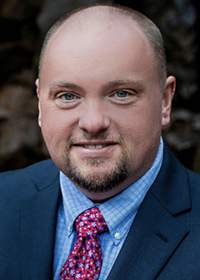 Billy Olesen, ACE
Billy Olesen, ACE
PestStop
Billy Olesen, ACE, chief executive officer of PestStop and registered tribal member of the Three Affiliated Tribes, started in pest control in 2002 working for his dad. His passion for knowledge and his love for a challenge led him into pursuing his certification as an Associate Certified Entomologist (ACE) in 2014. After becoming an ACE, he was appointed to the Kitsap County Noxious Weed Control Board, where he would later become the chairperson. While serving on the board, he advocated for biological controls and applications that consider pollinator health, and he now serves on the Washington State Pollinator Health Taskforce addressing pollinator health in Washington. He was elected to the Washington State Pest Management Association Board, where he now serves as president; he's a graduate of National Pest Management Association's (NPMA's) first Executive Leadership Program class and served on NPMA's Inclusion Diversity Equity Task Force and various other committees.
Olesen credits his ACE certification for opening up opportunities to teach others in and outside the industry about pest management. Olesen says, "When you can help people to make an informed and educated decision about their pest management needs, it's so rewarding; you create a real partnership that solves issues quicker while taking into account and addressing beforehand any concerns they may have." He would encourage anyone who wants to challenge themselves and grow their credibility to pursue getting their ACE certification.
Distinguished Service Award to the Certification Program
This award encourages, recognizes, and rewards outstanding contributions to the ESA Certification Program and the professionalism of entomology.
Patricia Hottel, BCE
Terminix
Patricia Hottel has served the pest management industry for more than 45 years. She specializes in food processing pest management, providing technical and training support for her team members and clients. Geographically, the majority of her work has been in the Midwest for the commercial pest management firm McCloud Services and now Terminix. Prior to moving to the Midwest, Hottel worked in New York, Florida, and the island of Bermuda as a technician, technical director, and in branch management.
Hottel has a bachelor's degree in entomology from the University of Georgia and a master's degree in instructional technology from the University of Central Missouri. The two degrees reflect her career path and enthusiasm for training and entomology.
She is a Board-Certified Entomologist (BCE) and a member of the National Pest Management Association (NPMA) Fumigation Committee. She is a former member of the Board of Directors of NPMA, the Illinois Pest Control Association, and the professional pest management fraternity Pi Chi Omega. She has chaired various industry committees, including the Copesan Technical Committee, NPMA's Commercial Committee, and NPMA's Technical Committee.
Hottel has received numerous awards, including Professional Woman of the Year and Chairperson of the Year for her work on NPMA's Insect Control Committee. She is a recipient of the Syngenta Crown Leadership award for professional pest management. She is a frequent presenter at industry conferences and a regular contributor to food processing and pest management industry trade journals. She is a contributing author to the PCT Guide to Commercial Pest Management.
Early Career Professional (ECP) Awards
Henry and Sylvia Richardson Research Grant
This grant provides research funds to postdoctoral ESA members who have at least one year of promising work experience, are undertaking research in selected areas, and have demonstrated a high level of scholarship.
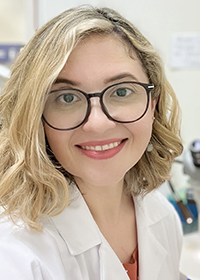 Paulina Maldonado-Ruiz
Paulina Maldonado-Ruiz
Kansas State University
Dr. Paulina Maldonado is a postdoctoral research associate in the Department of Entomology at Kansas State University. Her current research focuses on understanding the tick molecular determinants of red meat allergy induced by the lone star tick bites (Amblyomma americanum). Maldonado's research interests also include elucidating tick osmoregulatory physiology and characterizing the tick microbiome for the development of alternative methods for tick control. One of her short-term goals is to characterize tick bacterial strains to identify taxa that can be exploited for tick management and for the potential reduction of tick vector competence.
Maldonado received her bachelor's degree in biochemistry and her M.Sc. in microbiology (Mexico). She was awarded her Ph.D. in entomology (tick osmoregulatory physiology, management, and microbiome) at Kansas State University. Maldonado has been an active member of her department, serving in different departmental committees as a student; during her postdoc, she has expanded her involvement by organizing a biweekly journal club focusing on modern molecular entomology techniques for the benefit of graduate students and faculties.
Maldonado has been active in ESA by participating in Student Competitions as a graduate student, and by earning awards at the North Central Branch level and the national ESA level. As a postdoc, Maldonado continues her ESA involvement by serving as a judge for ESA Student Competitions and organizing symposia in the ESA Annual Conference.
Early Career Innovation Award
This award honors young professionals working within the field of entomology who have demonstrated innovation through contributions within any area of specialization (research, teaching, extension, product development, public service, etc.).
 Scott McArt
Scott McArt
Cornell University
Dr. Scott McArt is an assistant professor of pollinator health in the Department of Entomology at Cornell University, where he helps run the Dyce Lab for Honey Bee Studies and the Cornell Chemical Ecology Core Facility. McArt earned his B.A. from Dartmouth College, his M.S. from the University of Alaska–Anchorage, and his Ph.D. from Cornell University. He spent two years as a USDA postdoctoral fellow at the University of Massachusetts–Amherst prior to starting as a nontenure-track research scientist at Cornell in 2014. In 2017, he started as a tenure-track assistant professor. McArt's main research interests are ecotoxicology and disease ecology. His lab is currently focused on understanding how pesticides, pathogens, and habitat impact the health of honey bees and native wild pollinators. He is keenly interested in working with stakeholders (beekeepers, farmers, regulatory agencies, and other members of the public) to do science that addresses real-world problems and improves pollinator conservation and health. This works well with his 60/40 research/extension appointment, which gives him the privilege of interacting with a wide array of passionate people. When not engaged in research, McArt enjoys trying to stay in running shape (often with his loyal dog, James), going on any flavor of outdoor adventure with his family, and amateur nature photography.
ECP Extension Award
This award is given to a student transition or early professional who excels in entomological extension.
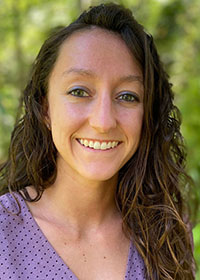 Morgan Pinkerton
Morgan Pinkerton
University of Florida
Dr. Morgan Pinkerton is the sustainable agriculture and food systems extension agent with the University of Florida, Institute of Food and Agricultural Sciences (UF/IFAS) Extension in Seminole County, Florida. She received her B.S. (biology), M.S. (entomology), and doctor of plant medicine (DPM) degrees from UF before joining as extension faculty in 2020. In her graduate studies, her research focused on invasive pentatomids as well as youth education on invasive species and biosecurity.
In her current position, Pinkerton regularly works with farmers and horticulture professionals in Central Florida and across the state. Through in-person and virtual educational programming, field visits, and one-on-one communications, she helps extension clientele increase the economic and environmental sustainability of their operations. In many of her extension programs, she focuses on insect diagnostics, integrated pest management (IPM), pesticides, and invasive species issues. She also teaches content to connect the public with food production to better understand how their food reaches their plate and the challenges farmers face in growing food. This includes a significant dedication toward extension education on entomology and agricultural literacy topics for both adult and youth audiences.
Pinkerton has been active in ESA since 2017, including participation in volunteer and leadership roles. She currently serves on the SEB Entomology Games Committee and is also the SEB representative on ESA's Committee on Diversity and Inclusion. She is a previous recipient of the SEB Kirby Hays M.S. Student Award, and she participated in the Entomology Games while a student.
ECP Research Award
This award recognizes a student transition or early professional who has made outstanding research contributions to the field of entomology.
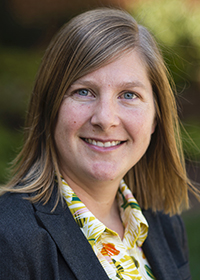 Karin Burghardt
Karin Burghardt
University of Maryland
Dr. Karin T. Burghardt is an assistant professor in the Entomology Department at the University of Maryland, College Park, and a research associate at the Smithsonian Environmental Research Center. Trained as a community ecologist, her lab's research program focuses on understanding the ecological principles shaping plant-insect interactions in human-modified landscapes such as suburban yards, urban greenspaces, and managed forests. The empirical results of this research form the backbone of the lab's extension program, which targets the establishment of evidenced-based, best practices for urban and suburban green space care. The goal is to promote activities that allow humans to share space with a variety of native flora and fauna and maintain vital ecosystem functions. Burghardt is an active civic participant through both urban forestry initiatives and municipal committee work. She received her Ph.D. in ecology and evolutionary biology from Yale University working with Dr. Oswald Schmitz on herbivore-induced defenses in goldenrod plants. Prior to that, she received a B.S. from the University of Delaware, working with Dr. Douglas Tallamy on the role of native and nonnative plants in ecosystems. More information on the lab's work is available at www.burghardtlab.org.
ECP Teaching Award
This award is given to a student transition or early professional who excels in entomological education.
Ashleigh Faris
Texas A&M University
Dr. Ashleigh Faris is an instructional assistant professor in the Department of Entomology at Texas A&M University (TAMU). She received her B.S. in entomology from TAMU, received her M.S. in forensic science from Sam Houston State University, and completed her Ph.D. in entomology at TAMU under the direction of Dr. Aaron Tarone. She served as postdoctoral research associate with Dr. Michael Brewer's field crops entomology group at Texas A&M AgriLife Research in Corpus Christi, Texas.
Faris teaches various undergraduate and first-year experience courses in the Forensic and Investigative Sciences (FIVS) Program and Department of Entomology (ENTO). She is also the department coordinator for ENTO and FIVS undergraduate internships and research, advises undergraduate-led research on forensic science topics, and serves on graduate student committees related to field crops and forensic entomology. Her scholarship of teaching and learning interests are diversity and inclusion for equitable undergraduate education, the interdisciplinary role of insects outside of entomology-based education, and course development/redesign for improving undergraduate retention. Faris was selected as a 2021 Inclusive Teaching Faculty Fellow through the TAMU Center for Teaching Excellence. She has adapted coursework for inclusion of Aggie Achieve students (young adults with intellectual and developmental disabilities) through modifications that remove barriers to learning so all students can flourish together in the same classroom environment. Faris has organized and presented symposia focused on entomology and its utility in interdisciplinary undergraduate education. She serves as the faculty advisor for the Aggie Forensic and Investigative Sciences Organization and the Aggie Art Therapy Organization.
Student Awards
Alate Award
This grant honors students currently enrolled at Historically Black Colleges and Universities (HBCUs) and other Minority-Serving Institutions (MSI), to promote interest in entomology and to stimulate interest in attending the ESA Annual Meeting.
- Jonathan Hernandez, Texas A&M University
- Brenda Leal-Galvan, Texas A&M University
- Jesus Raymond Mireles, California State University, Fresno
- Jessica Webb, University of California, Riverside
 Jonathan Hernandez
Jonathan Hernandez
Texas A&M University
Jonathan R. Hernandez is a Ph.D. student at Texas A&M University's Department of Entomology. He is under the guidance of Dr. Patricia V. Pietrantonio. His dissertation research focuses on the control of the yellow fever mosquito, Aedes aegypti.
His research interests are insect physiology and toxicology utilizing integrative molecular, cellular, and practical approaches to address the control of disease vectors. Currently, Hernandez is investigating insecticide resistance in females of Aedes aegypti from Harris County and the effect this resistance has on potential control interventions.
Prior to his doctoral studies, Hernandez received a B.S. in biology from Texas A&M University–San Antonio, where he participated in vector mosquito surveillance using ovitraps in San Antonio, Texas. He also researched nanostructured materials at Iowa State University in the Vela Laboratory. After finishing his undergraduate studies, Hernandez assisted in microencapsulation research at the Southwest Research Institute's Chemistry and Chemical Engineering Division as a research technician.
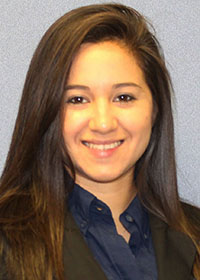 Brenda Leal-Galvan
Brenda Leal-Galvan
Texas A&M University
Brenda Leal-Galvan is a Ph.D. student under the direction of Dr. Chavez in the Department of Entomology, Texas A&M University (TAMU). Her dissertation consists of elucidating the differences and commonalities of the microRNA profiles and extracellular vesicles and the salivary glands, between Ixodes scapularis and Rhipicephalus (Boophilus) microplus. Moreover, she will investigate the molecular mechanism behind microRNA packing into exosomes in ticks. Ticks have caused global devastation and are vectors of several pathogens that produce morbidity and mortality in humans. The traditional method to control ticks is acaricides; however, building acaricidal resistance is inevitable. With her research, she hopes to discover conserved mechanisms that facilitate tick feeding to define novel targets that can be exploited for the management of tick populations.
Leal-Galvan received her B.S. in general biology at the University of Texas Pan American and an M.S. in general biology at the University of Texas Rio Grande Valley. Her thesis work was centered around how seasonal climatic factors affect tick questing. However, her true passion lies with understanding all interactions between a vector and its host.
In TAMU, she has been vice president for Aggie Women in Entomology and a member of the Entomology Graduate Student Organization. Leal-Galvan has mentored multiple students throughout her academic career, two of whom have published in respectable journals. She has also mentored minority graduate students and has volunteered in several outreach events to educate low-income and Spanish-speaking communities, the general public, elementary and high schools, and livestock handlers on the importance of tick research.
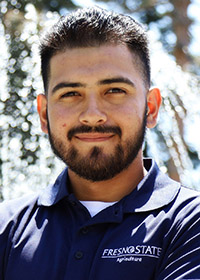 Jesus Raymond Mireles
Jesus Raymond Mireles
California State University, Fresno
Jesus Raymond Mireles is a first-generation Chicano college student born and raised in California's Central Valley. In 2020, he achieved his bachelor's of plant science at California State University, Fresno. He has gained experience in the agrochemical and technological research industry as a research technician with Bayer Crop Science. Working under an entomologist, Dr. Raksha Kuenen of Bayer Crop Science, he gained experience in identifying common insect pests and methods of control in California cropping systems. In 2020, Mireles was elected to assist Dr. Drew Palrang and Dr. Michael Schlemmer with the development of the Bayer Crop Science UAV program, where he played a key role in the establishment and operation of UAS technology used to assess plant health.
Mireles attained a competitive fellowship with Bayer Crop Science, where he was given the opportunity to continue his academic career at Fresno State and pursue a master's degree in plant science. With research experience in entomology and industrial technology, he combined his interest into his master's thesis. His research entails the utilization of remote sensing technologies to establish a monitoring protocol for assessing spider mite damage in almonds. While almond acreage in the Central Valley has increased over the past decade, spider mite monitoring methods remain unchanged, emphasizing time-consuming counts under a hand lens. Considering these conditions, his research would be instrumental in resolving gaps in the scientific literature, while potentially meeting the demand for a more efficient spider mite monitoring method.
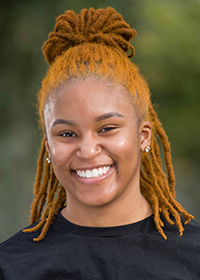 Jessica Webb
Jessica Webb
University of California, Riverside
Jessica Webb received her bachelor's degree in biology from Jackson State University (JSU). While pursuing her B.S., she received a research fellowship from the National Oceanic and Atmospheric Association and began conducting research on the temporal dynamics of benthic invertebrate communities, while simultaneously exploring the evolution of the mitochondrial genome of Taltrid amphipods. This sparked her interest in research and led her to do a summer undergraduate research experience through the National Science Foundation at Michigan State–Kellogg's Biological Station, where she researched the effects of prairie restorations on abundance and diversity of native pollinators including wasps, butterflies, and native bees. It was there that Webb realized her love of bees and decided to pursue a Ph.D. in entomology.
Webb is now a fourth-year Ph.D. candidate at the University of California, Riverside (UCR), where she was awarded a Dean's Distinguished Fellowship working with Dr. Boris Baer in the Center for Integrative Bee Research (CIBER). She is studying antifungal metabolites found in the seminal fluid of Apis mellifera drones to develop a novel medication for managed honey bee colonies to treat the gut microsporidian, Nosema ceranae. This type of research has led her to collaborative research efforts between CIBER and local hobbyist and industry beekeepers. She has been invited to give talks at local beekeeper meetings and is currently involved in organizing a bee health conference at UCR to bring together researchers and beekeepers to discuss and develop tools to manage bee health.
At UCR, Webb continually contributes to the teaching activities around the Bees and Beekeeping course on campus. She frequently mentors student researchers at both the high school and undergraduate level. Webb has also shown sustained personal engagement with underrepresented groups as she is a member of the UCR Entomology Department Diversity, Equity, and Inclusion Committee and is a graduate student mentor for UCR's Black Student Mentorship Program. She is also currently collaborating with faculty at her alumni HBCU institution to establish an Entomology Department and Bee Research Center at JSU, in hopes of increasing diversity in the field of entomology.
The Larry Larson Graduate Student Award for Leadership in Applied Entomology
This ESA award, sponsored by Corteva, recognizes Dr. Larry Larson's role as a leader and pioneer in insect management and carries that legacy to the next generation of leaders in applied entomology.
Leonardo Salgado
Cornell University
Leonardo "Leo" Salgado received his bachelor's degree in agricultural sciences at Universidad Nacional de Agricultura (UNAG) in Honduras. After graduating, Salgado joined Louisiana State University (LSU) to pursue a master's degree in entomology with a minor in applied statistics working on integrated pest management under the direction of Dr. Blake Wilson. While at LSU, Salgado was the president and a founding member of UNAs at LSU, an association connecting UNAG students with LSU faculty members to gain experiences in international agricultural research and supporting UNAG students to pursue graduate education at LSU.
Currently, Salgado is a Ph.D. student in the Department of Entomology at Cornell University under the direction of Dr. Brian Nault. His projects involve: 1) determining the onion maggot and seedcorn maggot composition early in the season when onions are most vulnerable to maggot attack, 2) comparing the efficacy of various insecticide seed treatments of onions in the field, 3) assessing maggot susceptibility to seed treatment insecticides by laboratory bioassays, and 4) determining if the size of the production region could influence the population genetic structure of maggot species in onion fields.
Salgado has been an active member of ESA since the beginning of his graduate studies. He has presented his research at branch and national meetings, organized a mini workshop, and participated in the EntoMentos program. In addition, he received the Kirby L. Hays Memorial Award from the Southeastern Branch in 2022. Salgado would like to thank ESA and Corteva for this award.
Lillian and Alex Feir Graduate Student Travel Award in Insect Physiology, Biochemistry, or Molecular Biology
The purpose of this ESA award is to encourage graduate students working with insects or other arthropods in the broad areas of physiology, biochemistry, and molecular biology to affiliate with ESA's Integrative Physiological and Molecular Insect Systems Section and to attend the ESA Annual Meeting.
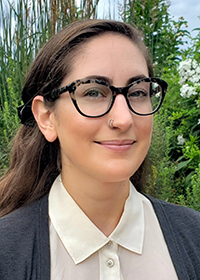 Molly Darlington
Molly Darlington
University of Nebraska-Lincoln
Molly Darlington is a Ph.D. candidate in the Insect Toxicology Lab at the University of Nebraska–Lincoln under the advisement of Dr. Ana Maria Vélez. Her dissertation furthers our understanding of the RNAi mechanism in the western corn rootworm (WCR), the first insect pest targeted by RNA technology. More specifically, her work evaluates the effect development, physiological variation, and gene expression have on WCR dsRNA susceptibility through the combination of molecular biology, toxicology, and computational methodologies.
As an ESA member, Darlington represented PBT on the Student Affairs Committee, co-organized the Student Debates, co-wrote and edited pieces for the American Entomologist Student Life section, co-organized symposia for PBT and P-IE at national meetings, published in Journal of Insect Science, and reviewed submissions for Journal of Economic Entomology.
During her graduate career, Darlington participated in a year-long intellectual property internship at NUtech Ventures, a nonprofit technology commercialization organization, and a second internship with RNAiSSANCE AG, a startup working to commercialize RNAi technology for a variety of insect pests. These experiences helped inform her decision to embark on a career working to develop and commercialize innovative and environmentally considerate biotechnology solutions in the pest management space.
Student Activity Award
Sponsored by Bayer, this award will be presented annually to recognize a student for outstanding contributions to the Society, their academic department, and the community, while still achieving academic excellence.
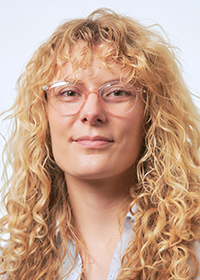 Hailey Shanovich
Hailey Shanovich
University of Minnesota
Hailey Shanovich is a Ph.D. candidate in the Natural Resource Science and Management program, advised by Dr. Brian Aukema, in the Department of Entomology at the University of Minnesota (UMN). Their dissertation research focuses on arthropod pest ecology in newly developed hybrid hazelnuts. They have held multiple leadership roles within ESA and UMN; most notable are chair of the North Central Branch SAC, president of UMN's Entomology Student Association (Frenatae), outreach coordinator of UMN's Natural Resource Association of Graduate Students, and Steering Committee member for UMN's Association for Gender Diversity in STEM. They have organized many outreach activities and have served on several committees in their program and department. Shanovich has published six peer-reviewed articles in ESA journals and has six more in progress, including four they have co-authored with their mentees. Shanovich has also contributed to ESA by presenting their research findings at annual meetings and branch meetings since 2017, serving on the Local Arrangements Committee for the 2022 North Central Branch Meeting, organizing three symposia at various meetings, serving as a moderator, participating in the Entomology Games, writing for Entomology Today, and submitting a common name proposal. In their free time, Shanovich enjoys scientific illustration, gardening, camping, fiber arts, and spending time with their dog Mila. They were awarded ESA's Larry Larson Award for Leadership in Entomology in 2020. Shanovich is honored to be a recipient of this award and is excited to continue to work for their passions in advocacy and effective outreach.
John Henry Comstock Award
These six awards are given to one graduate student from each ESA Branch to promote interest in entomology and to stimulate interest in attending the ESA Annual Meeting.
- Lídia Gual Gonzalez, University of South Carolina (ESA International Branch)
- James Hepler, USDA-ARS (ESA Pacific Branch)
- Maggie Lewis, Ohio State University (ESA Eastern Branch)
- Alex Payne, Texas A&M University (ESA Southwestern Branch)
- Anh Tran, ISK Biosciences (ESA North Central Branch)
- James Villegas, Louisiana State University (ESA Southeastern Branch)
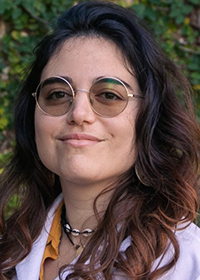 Lídia Gual Gonzalez
Lídia Gual Gonzalez
University of South Carolina
Lídia Gual Gonzalez is an epidemiology Ph.D. candidate at the University of South Carolina, working in Dr. Melissa Nolan's Laboratory of Vector-Borne and Zoonotic Diseases. She has recently collaborated with the Boyacá Health Department in Tunja, Colombia, working with the Vector Diseases Control Unit to help in a triatomine control study to reduce Chagas disease risk in rural communities. In addition to her work with triatomines and Chagas disease, her current dissertation focuses on tick-borne Spotted Fever Group Rickettsiosis in Colombia. With a multidisciplinary background, her career shifted from bench science with a bachelor's degree in biomedical sciences, to a more clinical research focus in her master's in one health and zoonotic diseases at the Autonomous University of Barcelona, Spain. This experience has exponentially grown her passion for medical and veterinary entomology. She has worked in field epidemiology doing research in tick- and flea-borne diseases in Uganda, and in clinical laboratory research in chronic Chagas disease in Spain. As the first in her family to pursue a graduate degree, her ambition and determination have brought her to pursue a career as an international vector-borne disease researcher, and she aims to help reduce health disparities throughout her career.
Dr. James (Jim) Hepler received his Ph.D. from Washington State University (WSU) in 2021, where his dissertation research examined the landscape ecology and management of the brown marmorated stink bug (BMSB) in the Pacific Northwest. His areas of study included the suitability of the semi-arid shrub-steppe flora for BMSB feeding and development, BMSB management in commercial fruit orchards using long-lasting insecticide netting, and the potential nontarget impacts of BMSB's primary parasitoid. He was also awarded a NIFA-EWD Predoctoral Fellowship to apply techniques of molecular gut content analysis to the BMSB system and was the recipient of the ARCS Foundation Fellowship. During his time with ESA as a student, he competed successfully in Student 10-Minute Paper competitions and on WSU's Student Debates and Linnaean Games Teams. Hepler is now a postdoctoral researcher with the USDA at the Appalachian Fruit Research Station in Kearneysville, West Virginia. His research focuses on the biology and ecology of the spotted lanternfly, with an emphasis on gut content analysis.
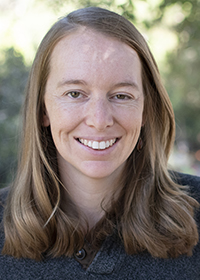 Maggie Lewis
Maggie Lewis
Ohio State University
Dr. Maggie Lewis received her Ph.D. in entomology from the University of Maryland under the supervision of Dr. Kelly Hamby. She previously completed her B.S. in molecular environmental biology at the University of California–Berkeley and her M.S. in entomology with Dr. Shelby Fleischer at Pennsylvania State University. Throughout her graduate career, Lewis has worked to advance integrated pest management in a variety of fruit and vegetable cropping systems. Her dissertation research broadly focused on applying knowledge of the ecology and behavior of spotted-wing drosophila for more sustainable management, with a particular emphasis on its interactions with yeast and hyphal fungal microbes. In addition to her research, Lewis mentored multiple undergraduate student researchers during her Ph.D. and actively engaged in extension outreach to small fruit growers and other stakeholders. Lewis is currently an NSF postdoctoral fellow at the Ohio State University, where her current research aims to understand how abiotic stressors impact host plant resistance in soybeans.
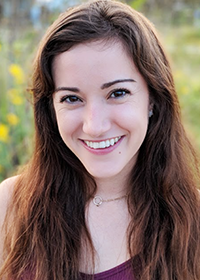 Alex Payne
Alex Payne
Texas A&M University
Alexandria (Alex) Payne is a Ph.D. candidate studying the disease ecology of honey bees in the laboratory of Dr. Juliana Rangel, associate professor of apiculture in the Department of Entomology at Texas A&M University. Her research incorporates aspects of virology, ecology, and honey bee biology to better understand the interactions between honey bees and their associated pathogens. She received her B.S. from Texas A&M University, where she double majored in bioenvironmental sciences and wildlife and fisheries sciences. She worked as an undergraduate research assistant in Rangel's laboratory before deciding to continue her education under her guidance and pursue a Ph.D. degree. She is graduating in May 2022 and has accepted a postdoctoral research associate position in the laboratory of Dr. Adam Dolezal at the University of Illinois at Urbana–Champaign, studying the bee-microbe interactions.
Dr. Anh K. Tran completed M.S. (2016) and Ph.D. (2021) degrees in entomology from the University of Minnesota. Tran's M.S. was under the guidance of Dr. Robert (Bob) Koch studying conservation biological control of the soybean aphid. Tran was co-advised by Dr. Sujaya Rao and Dr. Mary Rogers for their Ph.D., and their dissertation focused on investigating spotted-wing drosophila ability to overwinter or perform long-distance dispersal to survive in cold regions. Tran is currently the insecticide product development manager at ISK Biosciences located in Concord, Ohio. Tran is responsible for managing and developing current chemistries owned by ISK Biosciences throughout the United States and Canada, as well as providing technical support for ISK Biosciences insecticide products. Tran's goal is to assist growers with their pest management and insecticide resistance programs.
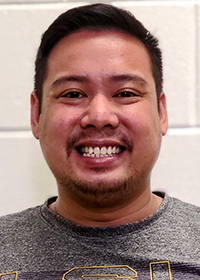 James Villegas
James Villegas
Louisiana State University
James Villegas is an assistant professor (field crops entomology) at the Louisiana State University (LSU) AgCenter. He has statewide extension and research responsibilities working in all field crops, including soybean, cotton, corn, grain sorghum, and wheat. His general research interests involve both applied and fundamental aspects of plant-insect interactions in crop agroecosystems. He takes a holistic approach to insect pest management by integrating various control tactics that can help maximize grower profitability and promote sustainable approaches. Villegas received his doctorate in entomology at LSU in the fall of 2021, where he investigated the role of plant tolerance and cultural tactics for the management of rice water weevil and the invasive stem-boring species, the Mexican rice borer. He also obtained a master's in entomology with a minor in applied statistics at LSU in 2017. His master's thesis was focused on the interactive effects of nitrogen fertilization and soil silicon amendment on insect pest complex. Prior to joining LSU in 2015, Villegas was a researcher at the International Rice Research Institute, where he was involved in a countrywide project utilizing ecological engineering approaches to restore and conserve ecosystem services. Villegas received his bachelor's degree in life sciences with a specialization in molecular biology and biotechnology from Ateneo de Manila University, Philippines, in 2012. In his free time, Villegas likes to explore new places with his wife and two kids, who are growing up way too fast.
CONTACT: Joe Rominiecki, jrominiecki@entsoc.org, 301-731-4535 x3009
ABOUT: ESA is the largest organization in the world serving the professional and scientific needs of entomologists and people in related disciplines. Founded in 1889, ESA today has nearly 7,000 members affiliated with educational institutions, health agencies, private industry, and government. Headquartered in Annapolis, Maryland, the Society stands ready as a non-partisan scientific and educational resource for all insect-related topics. For more information, visit www.entsoc.org.


